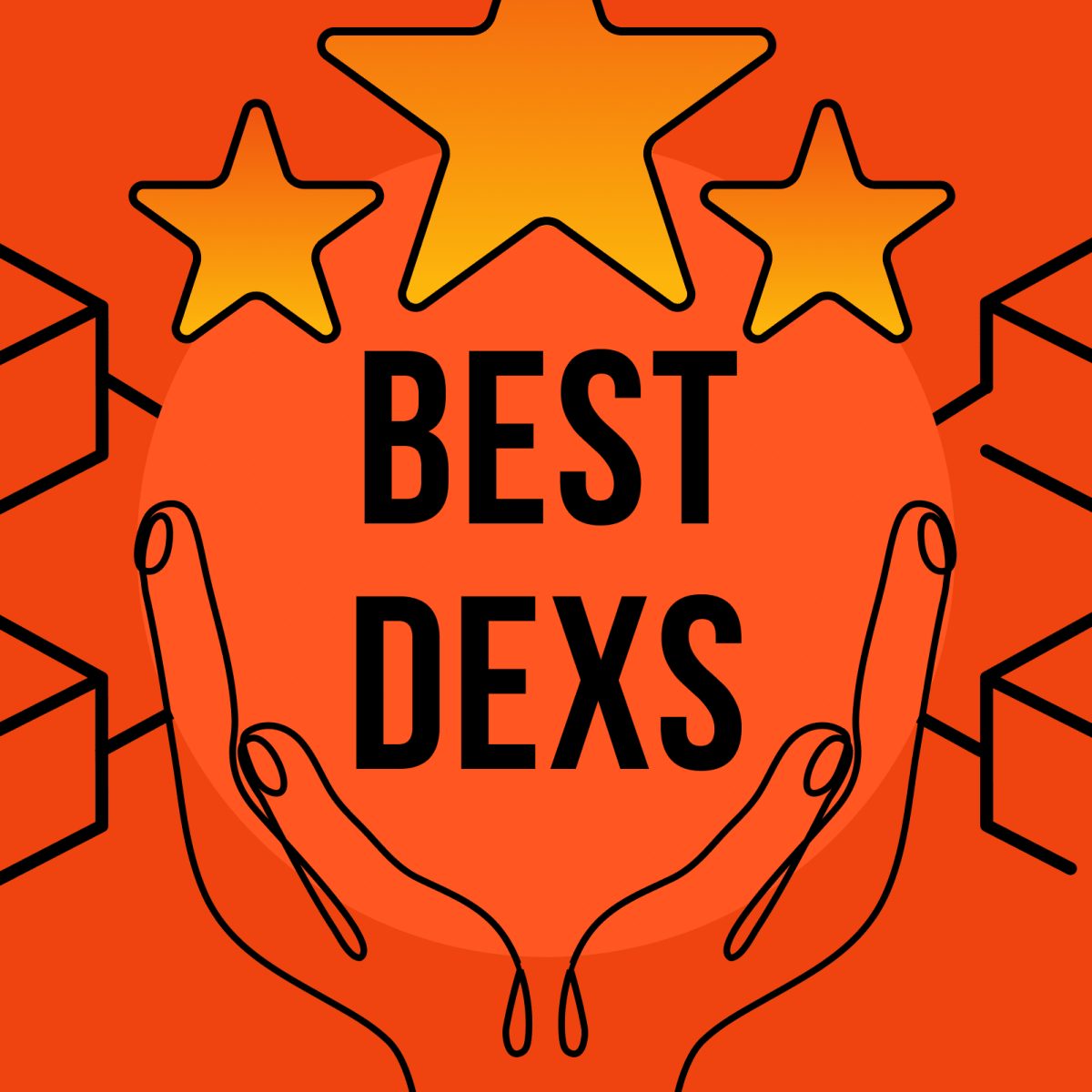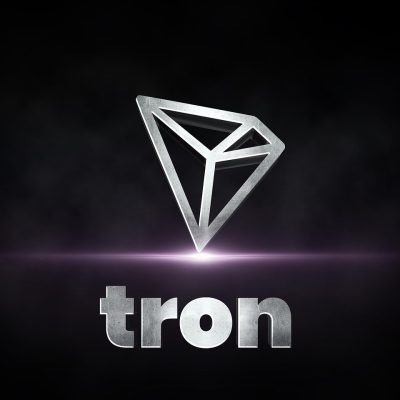In the crypto sphere, where financial independence and security are among the top priorities, decentralized exchanges have become a significant innovation. Unlike their centralized counterparts, these exchanges offer a different approach to trading digital assets.
In this article, I will briefly overview the best decentralized exchanges and talk about what to look for in a DEX. Let’s dive in!
What Is a Decentralized Crypto Exchange?
A decentralized exchange (DEX) is a platform that enables cryptocurrency trading directly between users without intermediaries or centralized authorities. This is done with the help of blockchain technology, specifically smart contracts, thanks to which transactions and trades can be carried out in a trustless manner. This architecture allows for a wide range of cryptocurrencies to be exchanged, like Ethereum, USDT, and many more.
One prominent feature of DEXs is their non-custodial nature. Simply put, it means that users maintain full control of their digital assets, which eliminates the risk of losing them if the platform is compromised.
Decentralized vs. Centralized Exchanges
Centralized platforms like Binance and Coinbase have dominated the crypto market for a long time, offering an easy-to-use interface, a wide range of cryptocurrencies, and high trading volumes. However, they operate much like traditional banks, using order books and storing user assets and personal information, thus becoming attractive targets for hackers. Additionally, centralized exchanges often have high trading fees and can impose restrictions on trading pairs or the withdrawal of funds.
Centralized vs. decentralized
Decentralized exchanges, on the other hand, operate via Automated Market Maker (AMM) protocols and smart contract technology (typically, on blockchain platforms such as the Ethereum network or the Binance Smart Chain). AMMs and smart contracts help DEXs manage asset trading, enforce trading rules, and facilitate direct interaction between users and the blockchain.
The Pros and Cons of Using a Decentralized Crypto Exchange
Most users can get everything they need in the crypto world from a centralized exchange. However, as I have already outlined above, DEXs have a few tangible benefits over their centralized counterparts. Many crypto traders will be able to appreciate the greater security they can provide.
Here are some of the benefits and risks of using decentralized exchanges you should consider before deciding what type of platform you want to go for.
Pros
Decentralized cryptocurrency exchanges offer several advantages, including but not limited to:
Control Over Funds. Users retain control of their digital assets, which mitigates the risk of hacks.Privacy. Most DEXs preserve user anonymity as they don’t require personal information.Wide Range of Trading Pairs. DEXs offer access to a broader array of cryptocurrencies, including new and niche ones.Innovative Features. Many DEXs incorporate decentralized finance (DeFi) features such as staking, yield farming, and liquidity pools, providing opportunities for passive income.
Cons
However, it’s essential to be aware of the challenges:
Scalability Issues. At peak times, the blockchain network may become congested, resulting in slower transactions and higher fees.Smart Contract Vulnerabilities. Bugs or vulnerabilities in smart contracts can potentially lead to financial losses.Liquidity Issues. Some DEXs may lack the liquidity providers necessary for smooth trading, which may lead to price slippage.No Margin Trading or Spot Markets. Many DEXs do not offer margin trading or spot markets, limiting their functionality compared to centralized platforms.
Despite these challenges, the rising trade volumes on decentralized exchanges indicate growing user confidence and improvements in technology. As the crypto market continues to evolve, DEXs could pave the way for a truly decentralized economy, empowering users and redefining how we perceive digital asset trading.
Whether you’re a seasoned market maker or a novice in the crypto trading world, understanding the dynamics of decentralized exchanges is vital in this rapidly changing environment. While the decentralized space might seem daunting at first, the potential rewards and the evolution of financial control are making it an increasingly attractive option for traders worldwide.
Top 10 Decentralized Exchanges
Now, let’s take a look at the list of the best decentralized crypto exchanges (in no particular order).
Uniswap
Uniswap is arguably one of the most popular exchanges in the DeFi space. Built on the Ethereum blockchain, it provides a simple yet powerful platform for users to trade a wide variety of crypto assets directly from their crypto wallets.
Uniswap’s clean and easy-to-navigate interface.
With a user interface that is intuitive enough even for beginners, Uniswap has made a name for itself as a go-to exchange. Unlike traditional exchanges, Uniswap doesn’t rely on order books to match buyers and sellers. Instead, it uses automated market makers (AMMs), allowing for faster transaction speeds and competitive prices, albeit with potential price slippage during times of high volatility.
Uniswap’s native token, UNI, acts as a governance token, giving holders the power to vote on proposals related to the platform’s development. Despite the relatively high Ethereum network transaction fees, Uniswap remains a favorite amongst both new and experienced traders.
SushiSwap
SushiSwap is a decentralized exchange that initially started as a fork of Uniswap but has since evolved into a full-fledged DeFi platform. Offering a suite of features, including yield farming and staking, SushiSwap enables users to earn passive income on their crypto assets.
The SUSHI token, apart from being tradable, grants holders governance rights, enabling them to participate in the decision-making process of the platform. Furthermore, SushiSwap’s Onsen feature offers boosted rewards for specific trading pairs, making it an attractive option for traders looking to maximize their returns.
While SushiSwap operates primarily on the Ethereum network, it has expanded to other networks, such as the Binance Smart Chain, reducing transaction fees and improving accessibility for its users.
Curve Finance
Curve Finance, a standout in the realm of stablecoin exchanges, optimizes for low slippage and low fees, making it a preferred choice for large trades. It’s not just an exchange; Curve also offers yield farming opportunities, allowing users to earn passive income on their crypto assets.
Curve.fi swap interface.
What sets Curve Finance apart from the crowd is its efficient bonding curve that empowers users to trade stablecoins at a near 1:1 ratio. This, combined with its low transaction fees, makes Curve a highly competitive platform for stablecoin trading.
CRV, Curve’s governance token, allows holders to participate in governance decisions. By staking CRV, users can also boost their rewards, further increasing the potential for passive income.
Balancer
Balancer operates as both a decentralized exchange and an automated portfolio manager. It is designed to adjust the ratios of tokens in liquidity pools based on programmable rules, offering a more flexible experience for liquidity providers.
Some of the Ethereum pools on Balancer.
Unlike traditional exchanges that maintain a fixed ratio in their liquidity pools, Balancer allows the creation of pools with up to eight tokens, their weightings customizable. This innovative approach opens up more opportunities for unique trading pairs and arbitrage.
The BAL token serves as a governance token, letting holders vote on proposals. Moreover, liquidity providers can earn BAL tokens as rewards, meaning they can benefit from another income stream on top of trading fees.
PancakeSwap
As one of the leading DEXs on the Binance Smart Chain, PancakeSwap offers a similar AMM model to Uniswap but with lower transaction fees, thanks to the efficiency of the Binance Smart Chain. Its humorous and engaging user interface, coupled with a plethora of yield farming and staking options, has made it a popular choice amongst crypto users.
The CAKE token is PancakeSwap’s native token, which can be staked to earn rewards or used to participate in the platform’s lottery. Despite its playful exterior, PancakeSwap is a robust platform that has attracted a large user base and significant liquidity.
1inch
1inch stands out as a decentralized exchange aggregator that sources liquidity from various exchanges to provide the best possible trading rates. For traders looking to get the most competitive price, 1inch is an excellent choice as it mitigates the need to manually compare prices across multiple platforms.
1inch mobile app interface.
1inch’s token, 1INCH, serves multiple purposes, including fee discounts and governance. By holding and staking these tokens, users can influence the platform’s future development and lower their trading fees. Despite being relatively new, 1inch has already proven to be a substantial player in the DEX space.
Kyber Network
Kyber Network offers a simple and efficient way to swap tokens directly from a user’s crypto wallet. By integrating with other platforms and aggregating liquidity from various sources, Kyber Network provides competitive rates for token swaps.
The native token, KNC (Kyber Network Crystal), allows holders to participate in governance and earn rewards from trading fees. Its Dynamic Market Making model makes it possible for traders and liquidity providers to customize their trading parameters, making it an attractive platform for more advanced traders.
Bancor
Bancor was one of the first platforms to introduce the concept of automated market makers to the crypto world. Its unique single-sided liquidity provision and impermanent loss protection are features that have been particularly attractive to liquidity providers.
The BNT is Bancor’s native token, and it serves multiple purposes on the platform, including governance, liquidity provision, and staking rewards. Bancor’s focus on ensuring a fair and efficient trading environment has earned it a solid reputation in the DeFi space.
Compound
While Compound is more commonly known as a lending platform, it has decentralized exchange functionality built into its system. Users can earn interest on their deposited assets and borrow against them. In this sense, Compound serves as a money market and exchange hybrid.
Compound’s dashboard.
The native COMP token is used for governance, giving holders the right to propose and vote on changes to the platform. It’s also distributed to users as a reward for interacting with the platform, providing an extra source of passive income.
Loopring
Loopring provides a unique solution to Ethereum’s scaling issues by using zkRollups. This technology batch processes multiple transactions off-chain, increasing transaction speeds and reducing costs while still ensuring the security of the Ethereum network.
Loopring’s native token, LRC, can be staked to earn rewards and lower trading fees. The combination of fast, cheap transactions and a secure, user-friendly interface has made Loopring a preferred choice for traders who prioritize speed and security.
Decentralized exchanges are shaping the future of crypto trading, offering alternatives to traditional financial systems and providing users with greater control over their assets. Whether you’re a beginner or an experienced trader, these top ten DEXs offer a variety of unique features that cater to a wide range of trading needs.
How to Find the Best Decentralized Exchange (DEX)
The crypto industry, as well as other digital entities, attracts bad actors with fraudulent cyber techniques. We kindly remind you to do your own research before putting your funds into any cryptocurrency project. There are several points that should be examined.
The Reputation of an Exchange
Read user reviews on the Internet to decide whether a DEX platform is worth your trust. Most often, user opinions are the most reliable criterion for search. However, let’s face it: users usually write negative feedback if the service fails them. In these terms, one should try to evaluate a platform with an unbiased yet attentive look.
Payment Methods
This parameter is crucial. For example, not all cryptocurrency exchanges work with Visa and Mastercard. In addition, when using a bank card, you must go through multi-level verification. Therefore, when choosing a decentralized cryptocurrency exchange, always pay attention to payment in order to avoid further problems.
Commission Fees
Most exchanges, including decentralized ones, charge fees. It is extremely important to know about them before depositing crypto assets and making transactions. Ethereum-based DEXs charge gas fees, so one should carefully examine all the conditions before interacting with an exchange.
Exchange Rates
Each exchange has its own exchange rate. Since these exchange rates are set for themselves, sometimes they can be very different. Naturally, it makes sense to compare them and choose the most profitable ones for yourself.
Restrictions on the Geographic Location
Cryptocurrency exchanges may have geographical restrictions, which are necessarily indicated on the official website of the exchange (in the Terms of Use). Some crypto exchanges do not operate in the United States, but some do. Decentralized exchanges strive to be accessible to any human being in the world regardless of their nationality and residence. However, few DEXs underline that they cannot be accessed by users from particular countries.
FAQ
What is a DEX?
A DEX, or Decentralized Exchange, is a platform that allows for peer-to-peer trading of cryptocurrencies directly between users without intermediaries. DEXs operate using blockchain technology and smart contracts, ensuring that users maintain full control over their digital assets. Examples of DEXs include Uniswap, SushiSwap, and PancakeSwap.
What is a multi-chain decentralized exchange?
A multi-chain decentralized exchange (DEX) is a trading platform that operates across multiple blockchain networks. It combines the liquidity and assets from different chains, allowing users to swap tokens from one blockchain to another. Apart from increasing the range of available trading pairs, this can also help reduce transaction fees, as users can choose to operate on the blockchain with the lowest costs at any given time.
How many crypto exchanges are there?
There are hundreds of crypto exchanges in operation worldwide, both centralized and decentralized.
Is KuCoin a decentralized exchange?
No, KuCoin is not a decentralized exchange. It’s a centralized exchange, which means it operates much like a traditional financial institution, holding user funds and facilitating trades on their behalf. Users need to deposit their assets into a KuCoin account before they can begin trading, and the exchange maintains control over these funds until they are withdrawn. While centralized exchanges like KuCoin often offer higher trading volumes and more features, they also involve a degree of trust in the platform to secure user assets.
Disclaimer: Please note that the contents of this article are not financial or investing advice. The information provided in this article is the author’s opinion only and should not be considered as offering trading or investing recommendations. We do not make any warranties about the completeness, reliability and accuracy of this information. The cryptocurrency market suffers from high volatility and occasional arbitrary movements. Any investor, trader, or regular crypto users should research multiple viewpoints and be familiar with all local regulations before committing to an investment.





